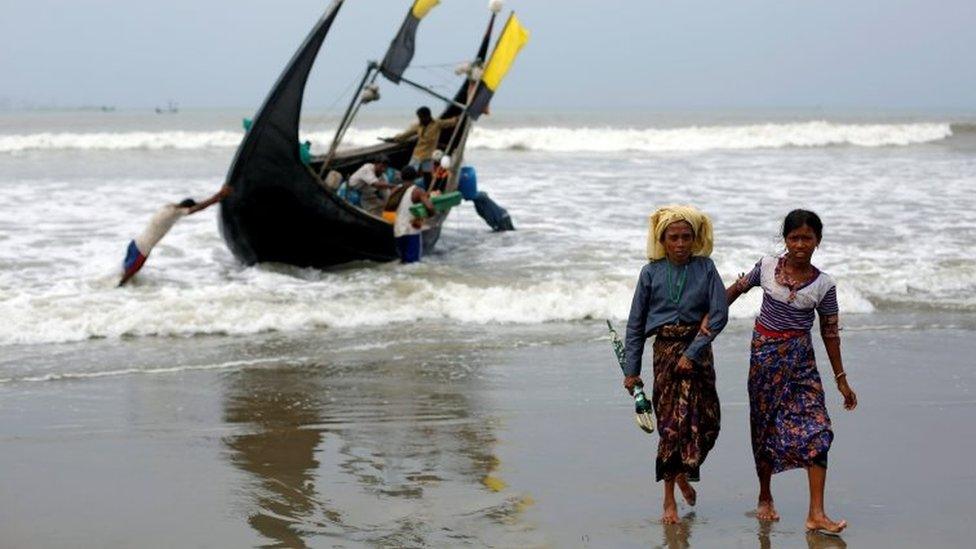Pope Francis avoids angry reaction in Myanmar
- Published
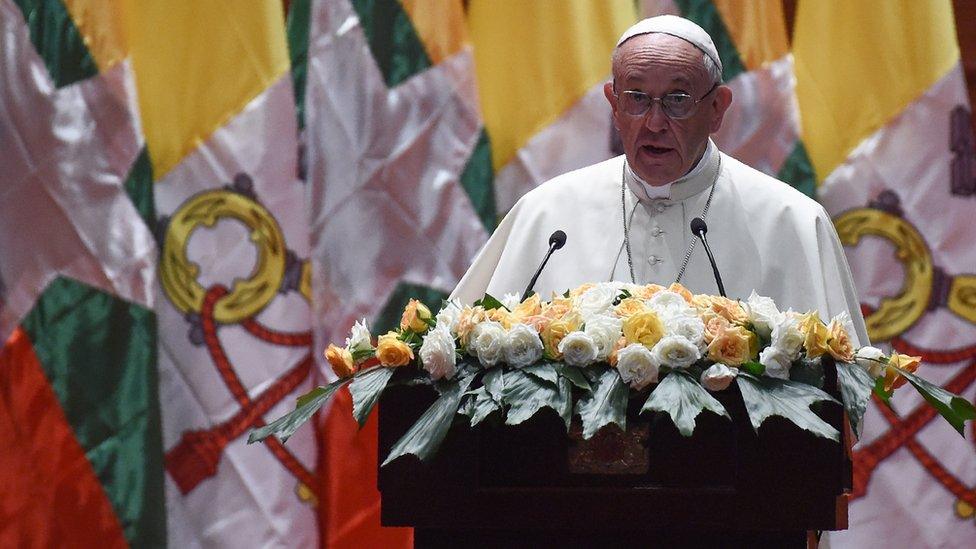
Pope Francis delivered a speech in Myanmar without referring specifically to the Rohingya
It is worth remembering that the visit of Pope Francis to Myanmar was planned well before the Rohingya refugee crisis erupted in August.
It was intended to upgrade diplomatic ties between the Holy See and Myanmar, and to enhance the status of the small Roman Catholic community in the country, many of whom come from other vulnerable minorities.
The Pope was coming here as much as a diplomat and statesman as he was a moral leader. In the end, he let pragmatic considerations prevail over the expectation that he speak out against the treatment of Rohingya.
His Keynote speech was delivered in Naypyitaw, the new capital that was hewn out of the bush by a paranoid military regime a decade ago and is still the seat of power in Myanmar.
It was easy to spot the thinly-veiled references to the plight of the Rohingya; the need to "ensure respect for the rights of all who call this land their home", to build a democratic order which "enables each individual and every group - none excluded - to offer its legitimate contribution".
But by avoiding the name Rohingya, Pope Francis headed off an angry reaction from hard-line Buddhist nationalists, and any embarrassment for Aung San Suu Kyi, who hosted him in Naypyitaw.
She can now proclaim his visit a success, and the virtues of engaging with institutions like the papacy which, unlike Myanmar's strongest backer right now, China, does talk about human rights.
Aung San Suu Kyi's supporters have argued that Western criticism of her silence over what the UN and US have called the "ethnic cleansing" of the Rohingya only weakens her in a long-term battle for power with the military.
Jonathan Head, speaking on a government-organised trip in Myanmar
Some believe this is just used as an excuse; that she just does not prioritise the unpopular Rohingya. But the Pope seems to have listened to that argument, and to the pleas of fellow Christians that he consider their vulnerability.
Indeed, one hard-line monk told me that had he used the term Rohingya, that would have been enough for many Buddhists to conclude the Christians were backing the Rohingya against the government and the military.
But it will be hard for the Pope to defend his meetings with armed forces commander Min Aung Hlaing, and ultra-nationalist senior monk Sitagu Sayadaw, if there is now no softening of their hostility to the Rohingya.
More from Jonathan Head in Myanmar:
- Published28 November 2017
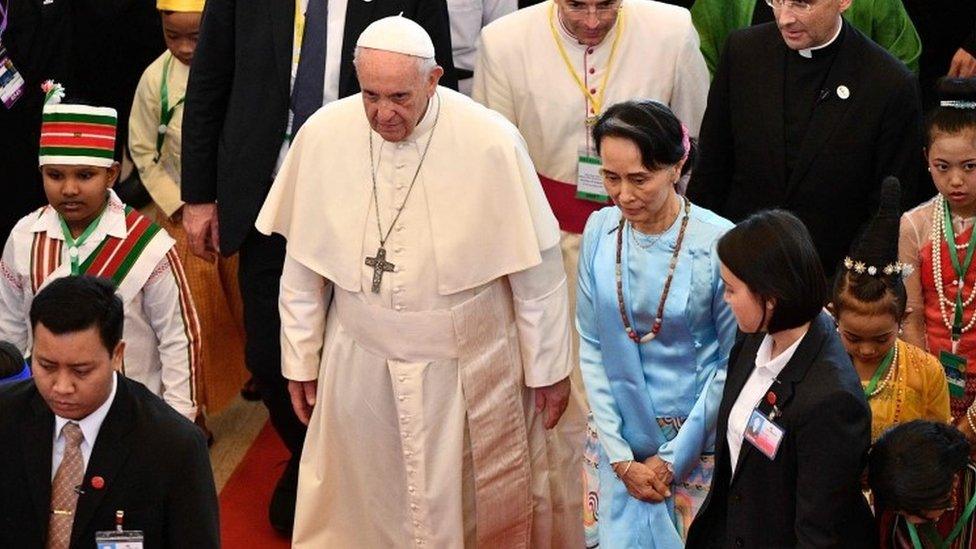
- Published23 November 2017
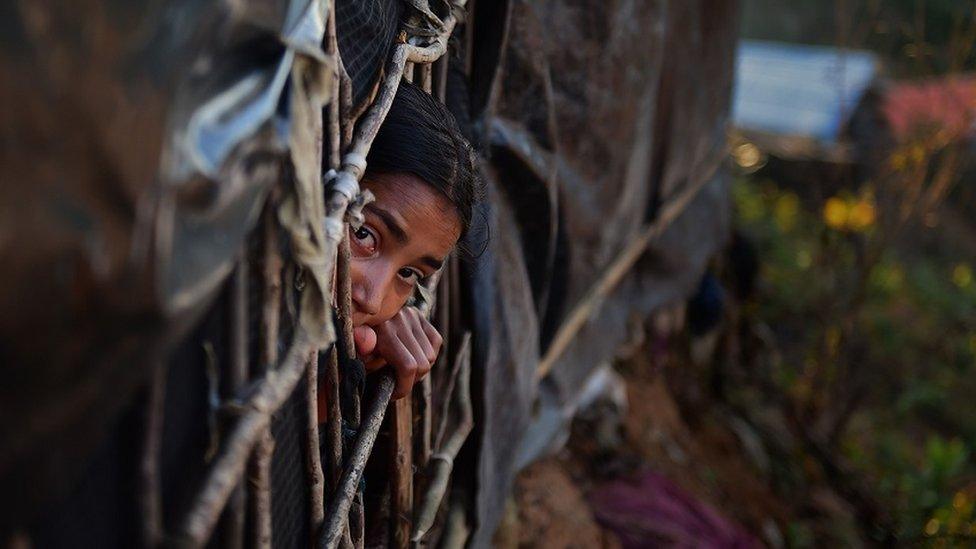
- Published22 November 2017
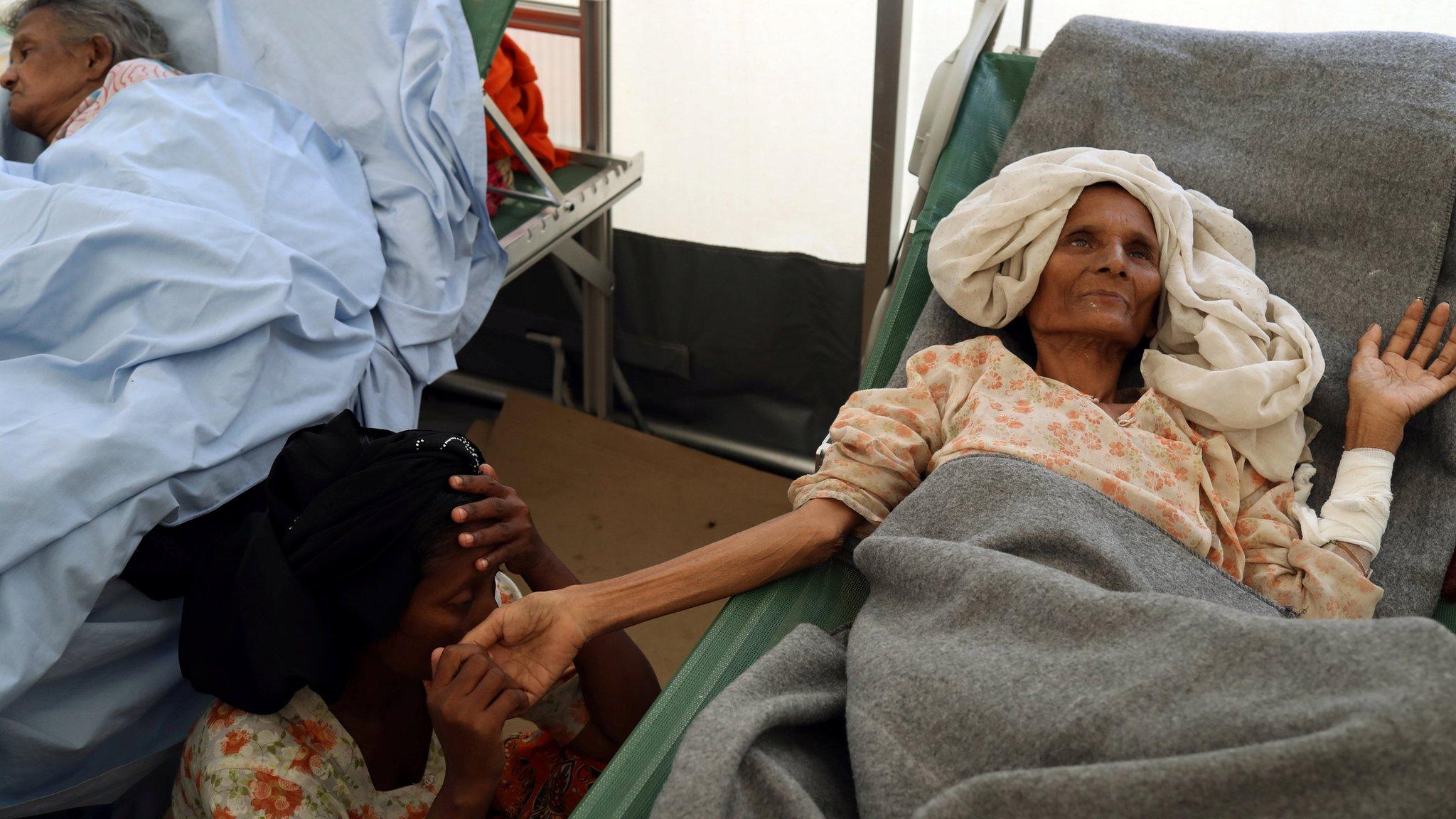
- Published25 October 2017
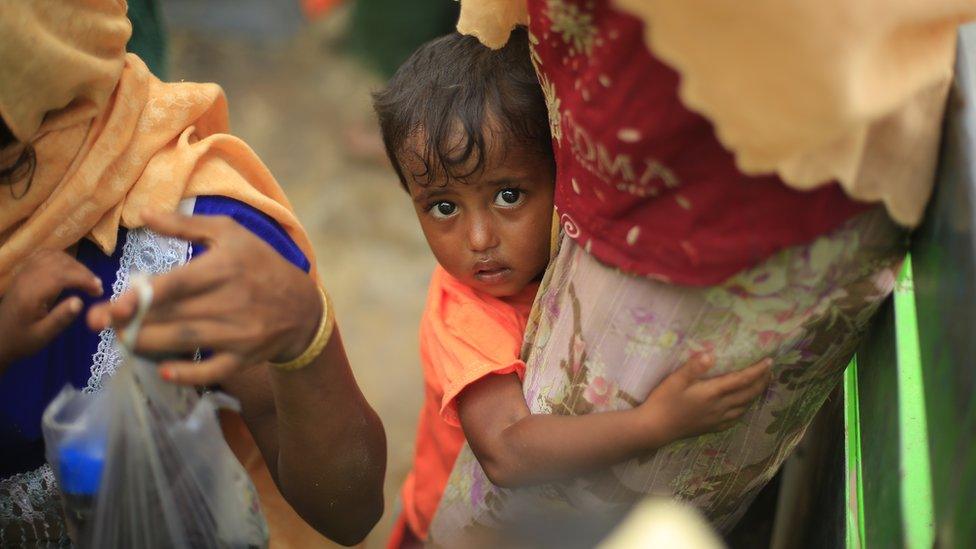
- Published14 November 2017
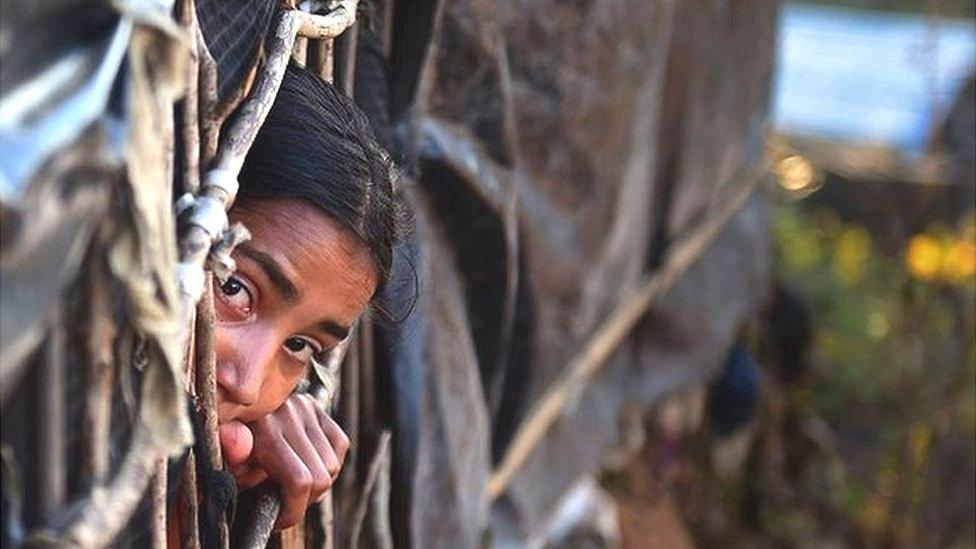
- Published7 September 2017
